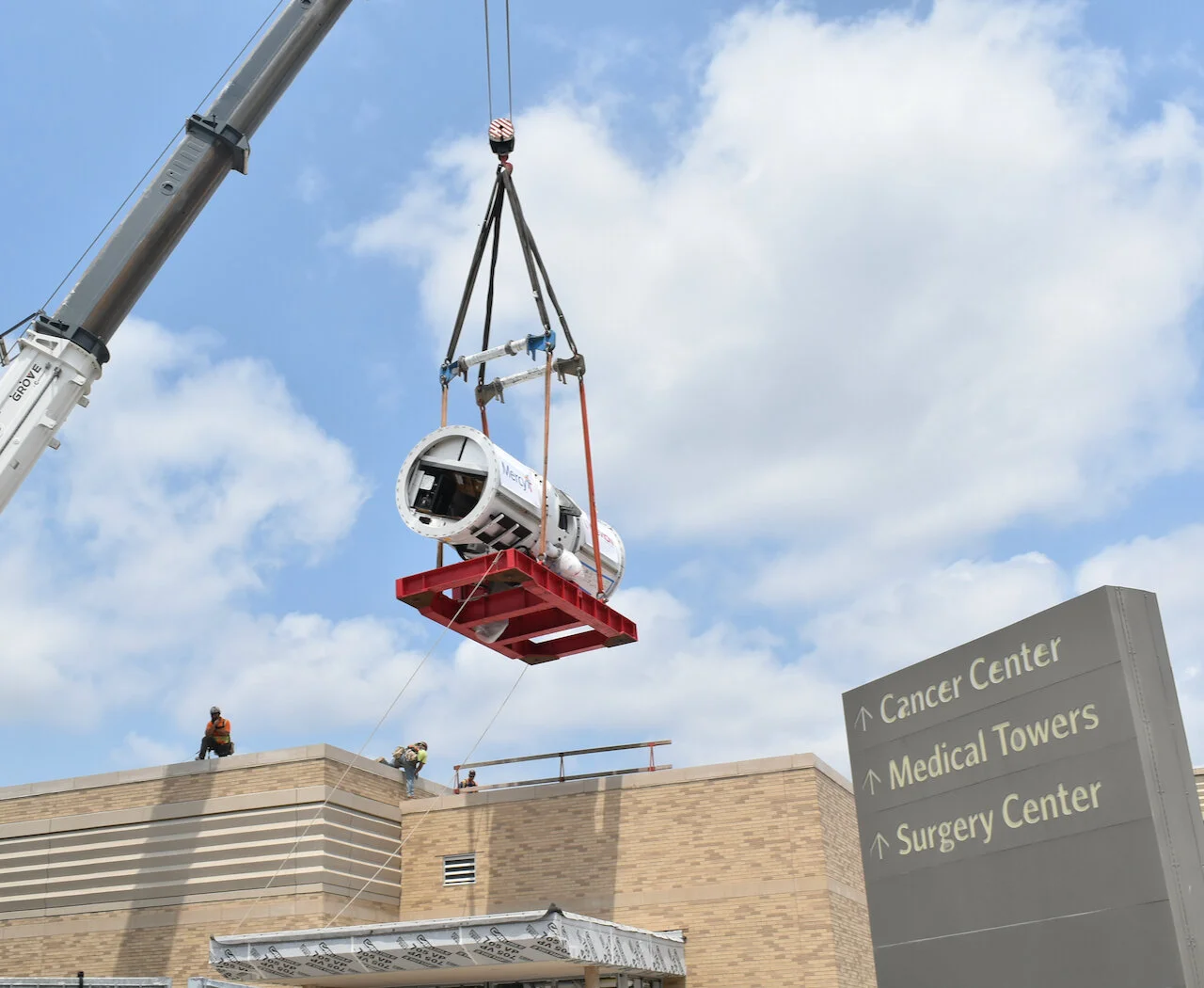A 30,000-pound centerpiece has arrived at the Mercy Proton Therapy Center, currently under construction at the David C. Pratt Cancer Center.
Last week, McCarthy Building Companies positioned the MEVION S250iTM gantry-mounted proton accelerator into place at the site, located at 607 S. New Ballas Road in Creve Coeur, Mo.
After a journey across seven states, the accelerator was placed through an opening in the vault’s 7-foot, 6-inch thick concrete lid using a 350-ton capacity crane, the same day it arrived.
“This major milestone in construction puts us one step closer to making the Mercy Proton Therapy Center a reality for our patients,” said Steve Mackin, Mercy executive vice president and Mercy’s East Communities president. “Seeing the equipment before it’s enclosed in the concrete vault shows just how massive an undertaking this project has been. It’s remarkable to think of the many people who will survive – and thrive – because of this technology.”
A small crowd of leaders from Mercy, McCarthy and Mevion took turns signing the equipment and then watched as the accelerator unit was placed into position. It was secured inside a three-story, 42-foot-by-47-foot “vault” treatment room featuring concrete walls ranging from three to seven and a half feet thick located within the new 17,000-SF addition to the David C. Pratt Cancer Center. The center was designed and built with extreme precision, with tolerances less than three-quarters-inch wall-to-wall, and one-inch floor-to-ceiling.
The world’s only gantry-mounted proton accelerator, the MEVION S250i, features the HYPERSCAN® pencil beam scanning technology and Adaptive Aperture® pMLC that delivers a highly stable, fast, precise and uniform proton therapy beam. The complete unit weighs 300,000 pounds, including the 30,000-pound accelerator, 85,000-pound housing and 72,000 pounds of arms and counterweights.
Currently, there are only 41 proton centers in the United States. Proton therapy, which has fewer side effects than traditional cancer treatments and can be used for many types of cancer, uses high-energy beams of protons to precisely deliver radiation to a tumor, reducing or eliminating unwanted radiation exposure to surrounding, healthy tissue. Mercy will make this option available for patients pursuing both research options and traditional clinical care.
Construction began in July 2020; the center’s opening is planned for summer 2022.

